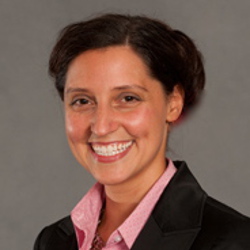By Angie Perone
 Angie Perone
Angie PeroneMore than a month after the U.S. Supreme Court's landmark marriage equality decision, Obergefell v. Hodges, much work remains for full LGBT equality. The decision itself represents a giant step forward on our civil rights journey. By affirming marriage equality in all 50 states, the decision opens new rights for many same-sex couples, including access to health, disability and survivor benefits, tax exemptions, Medicaid benefits, inheritance, adoption, funeral and bereavement leave, and spousal pensions — to name a few. But we must remain vigilant about the many rights this decision fails to address.
While the Obergefell decision bestows rights to same-sex couples who are married, it provides no relief for LGBT people who are single, dating or partnered but unmarried. For LGBT older adults — particularly those who come out later in life — marriage can strip important economic benefits that keep LGBT older adults out of poverty.
Assume that Regina and Betty came of age during McCarthyism, also called the "Lavender Scare." At the time, the government and private panels persecuted persons suspected of same-sex attraction or gender nonconformity and punished them with jail, hospitalization, lobotomies, employment termination and loss of child custody. Burying their same-sex attractions, Regina and Betty married men. While they held various part-time jobs, their husbands provided most of their financial support. After their husbands died, Regina and Betty received spousal benefits through Social Security and pensions, based on their husbands' past work experience. Regina and Betty met at an event in 2008 and have been together ever since. If they marry, however, they lose access to their pension and Social Security spousal benefits. For an 80-year-old woman, this financial outcome is daunting.
Because many rights are so intimately tied to marriage, unmarried LGBT persons at any age encounter this inequality.
This problem plagues persons outside the LGBT community, too. But the long history of exclusion, stigma and discrimination toward LGBT persons renders a relationship between marriage and equal rights especially problematic because it creates one more place of inequity. While decoupling equal rights from marriage could be a potential long-term solution, LGBT persons and allies can help tip this unequal balance by first recognizing the existence of this inequality.
In addition to leaving the rights of unmarried LGBT persons untouched, the Obergefell decision also fails to preserve equal rights in important domains outside marriage, including employment, public accommodations and housing. Some states have laws that prohibit discrimination based on sexual orientation and gender identity. Other states only prohibit discrimination based on sexual orientation. Most states (including Michigan) prohibit neither types of discrimination. In two recent rulings, the U.S. Equal Employment Opportunity Commission found that federal law prohibits employment discrimination based on sexual orientation and gender identity, but these rulings are not binding on many employers. Many LGBT people can be terminated, evicted or refused service from a business merely because they are lesbian, gay, bisexual and/or transgender. Not because they failed to pay rent. Not because they violated any policies or rules. Not because they failed to pay their bills. But solely because they are LGBT.
Many civil rights organizations, legislators and community leaders are diligently working to create legislation that protects LGBT persons from discrimination as workers, renters and consumers. But these groups encounter new obstacles in the form of religious exemptions, which are nebulous and provide immense room for discretion, thus allowing significant discrimination to continue. Many anti-discrimination laws already in place have some form of religious exemptions for churches, for example. Religious exemptions proposed for new laws go much further, allowing individuals to decide on a whim that their individual "religious beliefs" prohibit equal treatment. The Obergefell decision fails to address these religious exemptions, and immediately after the decision, several states created religious exemptions for their county clerks, allowing them to refuse marriage licenses to same-sex couples.
The U.S. Supreme Court does not seem too eager to rule against such exemptions. In its 2014 Burwell v. Hobby Lobby decision, the Court ruled that corporations with religious objections may disregard the Affordable Care Act's requirement to provide contraception in their health coverage. Religious exemptions reflect a new tool that many groups are using to destroy efforts to create meaningful anti-discrimination laws. Instead of helping build a more just society, broad religious exemptions are chiseling away at equal rights. They seem to be gaining traction, however, and efforts to create new anti-discrimination laws that protect more LGBT people will have to contend with this obstacle.
Despite its occasional reference as a "gay marriage" case, the Obergefell decision benefits same-sex couples in which one or both partners are transgender, particularly because most states connect legal marriage to state identification documents. Thus, many transgender persons can now marry who were once denied marriage because their state identification documents reflected a gender that would have resulted in a marriage deemed to be between same-sex partners. Nonetheless, Obergefell does not extend equal rights to transgender persons outside marriage, and equal health coverage remains an important battleground for the future.
Obergefell leaves many other health issues for LGBT persons unaddressed, including whether LGBT employees with certain types of insurance plans (e.g. self funded) will be able to cover their same-sex spouse. LGBT persons who want equal health coverage for fertility treatments and surrogate parenting also lack clarity under the law.
To obtain full equality, an LGBT movement must understand and respond to the connection among multiple injustices. LGBT communities reflect a rainbow of classes, races, genders, religions, sexual orientations and gender identities. The murders of unarmed black men like Eric Garner, Trayvon Martin and Michael Brown are LGBT issues. Sexual assaults and workplace abuses of immigrant women like Maria Bojorquez are LGBT issues. Mass killings and destructions of places of worship like the Emanuel AME Church in South Carolina and Islamic Center in Texas are LGBT issues. Significant work remains after the Obergefell decision. By finding common ground among allies and supporting all LGBT persons, full equality can prevail.










